Red Bull F1 Boss Christian Horner on ‘Future Champ’ Max Verstappen and Racing During a Pandemic
“He’s got great bravery. He’s massively determined. He never gives up. He’s a fighter. And he’s just a very, very exciting talent to work with.”
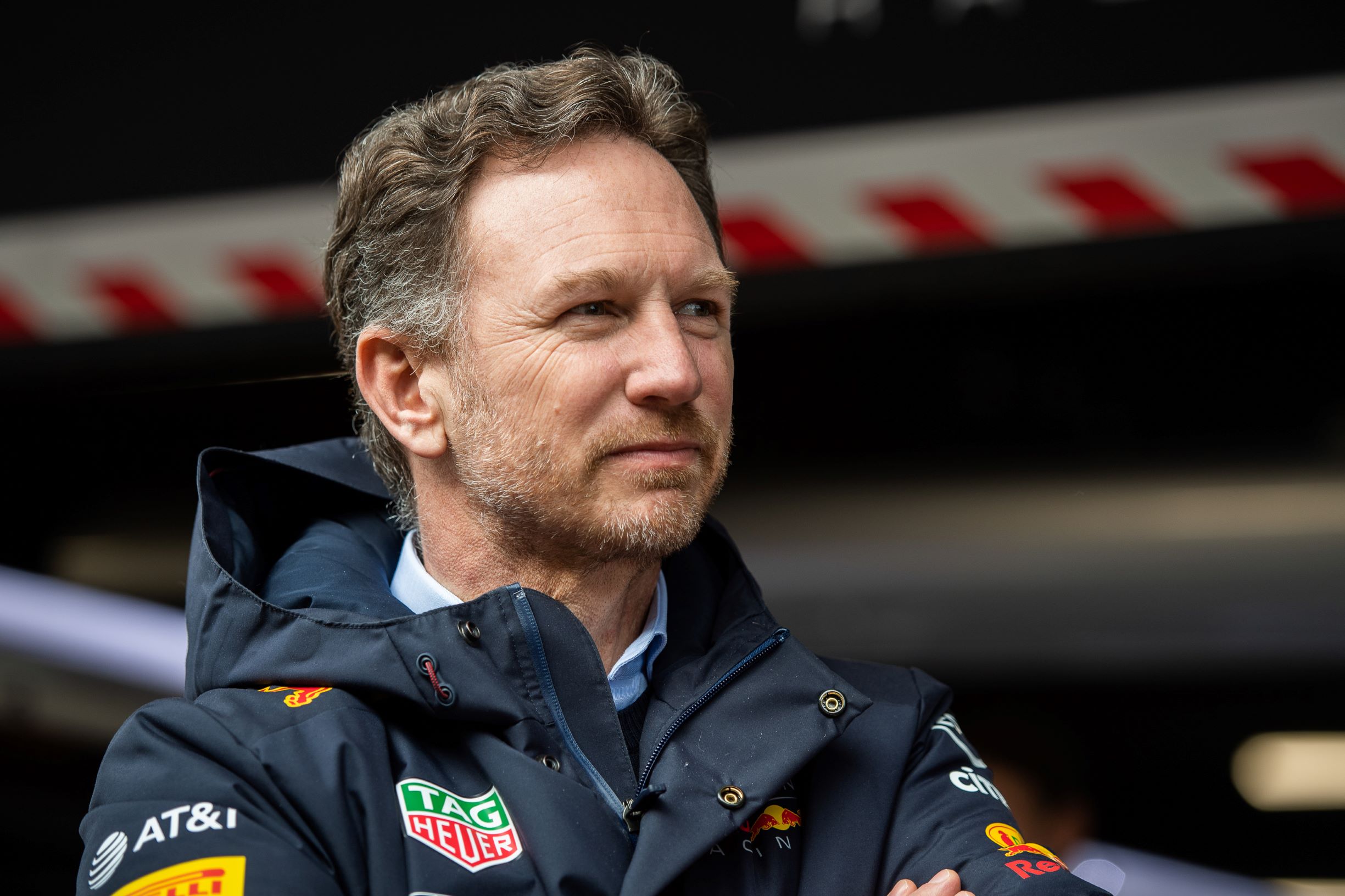
In November of 2004 an upstart Red Bull—at the time mainly known for an effervescent energy drink spreading like wildfire across the globe— bought the struggling Jaguar Formula 1 Team. Eager to throw their silver can into the pinnacle of motorsports, Red Bull Racing was born.
Only a couple of months later RBR tapped a relative unknown named Christian Horner to run its team, making the 31-year-old the youngest Team Principal in the sport’s history. While the stodgy world of Formula One snickered at the idea that a fizzy drinks company could come and compete with the old school giants of Ferrari, Mercedes, McLaren and company, RBR and Horner believed they could change the world. They notched their first podium in only their second year, capped off with a naked Horner famously leaping into the Red Bull pool with only a Superman cape to cover his assets.
Then after teaming up with future superstar driver Sebastian Vettel, in 2010 RBR won its first Constructor’s and Driver’s Championships— stunning the motorsports world and making both Horner and Vettel the youngest ever to win as Team Principal and Driver. They would do it three more times, consecutively, cementing the greatest era of dominance the sport had seen since Schumacher and Ferrari.
Those halcyon years were followed by an even greater era of supremacy by rivals Mercedes Benz, however, who have now won Constructor’s and Driver’s Championships six consecutive years under Team Principal Toto Wolff and G.O.A.T. driver Lewis Hamilton. But as the restart of the 2020 post-COVID-19 season heats up, Horner’s RBR team trails only Mercedes in the standings. Yet only two races later, at Horner’s home circuit of Silverstone at the 70TH Anniversary Grand Prix, Verstappen would claim Red Bull’s first checkered flag of the year. The drama continues…
We caught up with Horner just after the Hungarian Grand Prix where his prime driver, superstar-in-the-making Max Verstappen, notched second behind Hamilton.
You come from fairly humble roots—especially when it comes to F1, which is an extremely expensive sport.
I always had a passion for speed, and grew up watching things like The Fall Guy and The Dukes of Hazard and Evil Knievel, and anything like that. I was just fascinated by speed. I wanted to start racing at a very early age, and in the UK you could get into kart racing pretty young in those days. So for my 12th birthday I actually pestered my mum to buy this beat-up old go-kart we found in the local paper. And yeah, that was it. Suddenly I’d discovered you could race these things as well… I was fortunate that my father enjoyed motor racing, so I had something that I could share with him at that young age.
You were a talented racer, and rose in the ranks to finally own your own F3000 team. How did you become an owner?
What happened was I went through karting as usual in those days, and I won a scholarship when I was 17 to move from karts into car racing. So I raced in Formula Renault, then I raced in Formula Three, then in what is now Formula Two, but the higher you go, the more expensive it becomes. I had a number of sponsors, but I didn’t have enough to go to a decent team. So I thought, I’ll buy a car and we’ll get some mechanics together and an engineer, and off we went racing. Almost by accident I got into team ownership. It was a means to an end…. At least by setting up my own little team I’d have some assets at the end of it. I’d have a car and some equipment, rather than just going and paying a fee to a team and having nothing at the end.
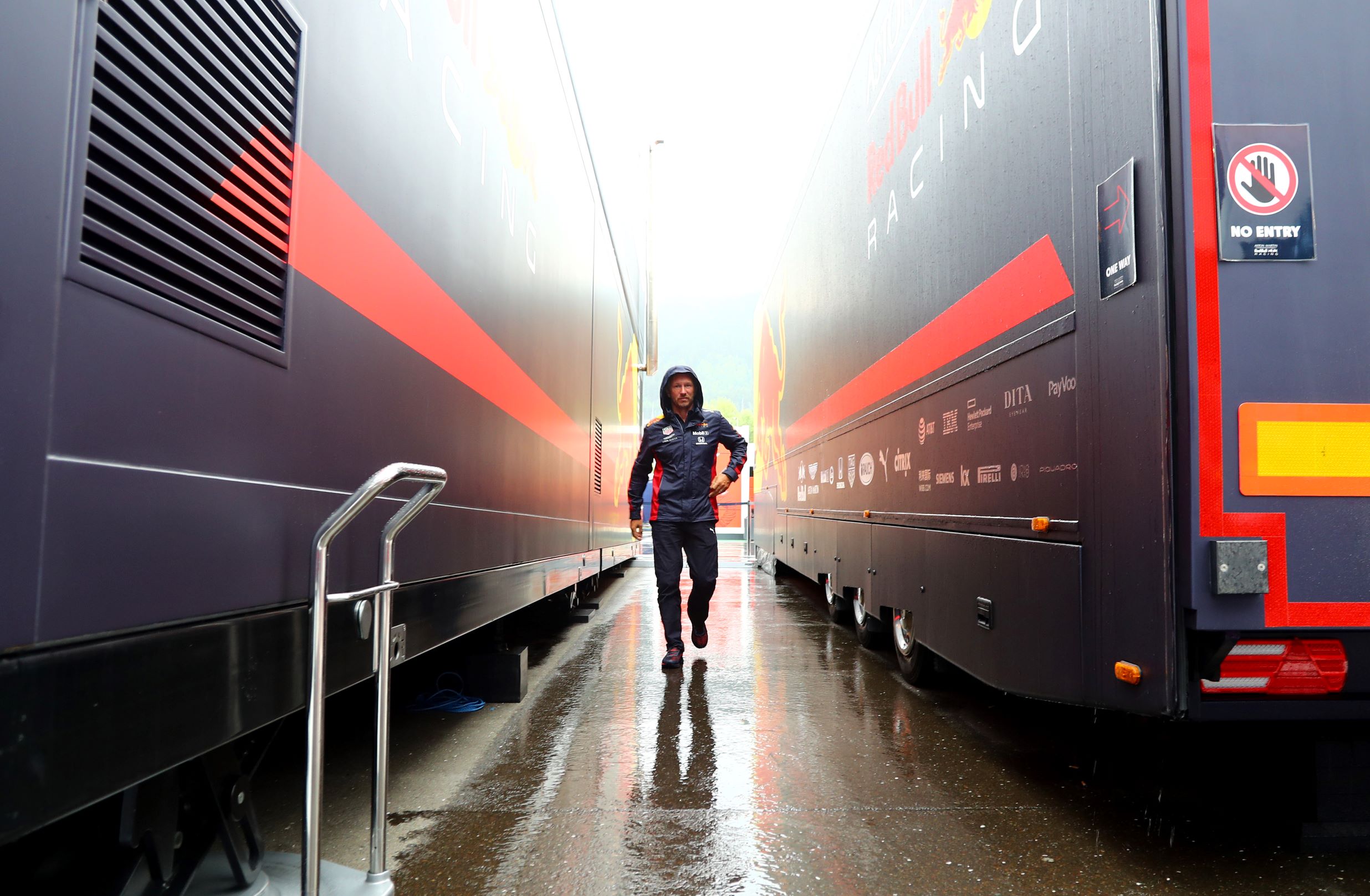
I suppose that stretch taught you the details of running a team.
At that time I was booking the hotels, I was washing the truck, I was doing the VAT and tax returns, I was doing payroll. I was doing all of the different jobs. And then on a Saturday, Sunday, thought, ‘Okay, I’ve got to drive the car.’ But I couldn’t afford to crash because we didn’t have any spare parts. So it was a great education for me to be involved from a grassroots basis like that, and have to operate all of those functions. And just managing and working with people and employing people—I was a 24-year-old driver. What did I know about employing engineers and mechanics and technicians?
It was a foundation for something that has become, unbeknownst to you at the time, your legacy. You came into this as a racer, but it led you to team ownership. How did you get involved with Red Bull?
At the time [Red Bull Racing advisor] Helmut Marko wasn’t involved with Red Bull, he was running his own team in Formula Two. I ended up meeting him and buying his trailer off him. I had no idea who he was, to be honest with you. We cut a straight deal and that was that. And then he stopped his race team and he went on to work with Red Bull, looking after their young driver program. And my team was getting stronger and stronger and won the championship for two years in a row…. So, I cut an aggressive deal with Helmut, in which he basically paid half a fee, but he paid a good bonus if we won a race. And we won eight out of the 10 races that year. So it worked out okay for both of us. He and I got on well; he saw what I was capable of. And I was still only 31 at the time. And he recommended me to Dietrich Mateschitz, the owner of Red Bull, who then offered me the chance when they bought what was the Jaguar Formula 1 team. They offered me the Team Principal role; they took a risk on a 31-year-old who had had a lot of success in the lower Formula, but there were no guarantees that would translate to Formula 1.
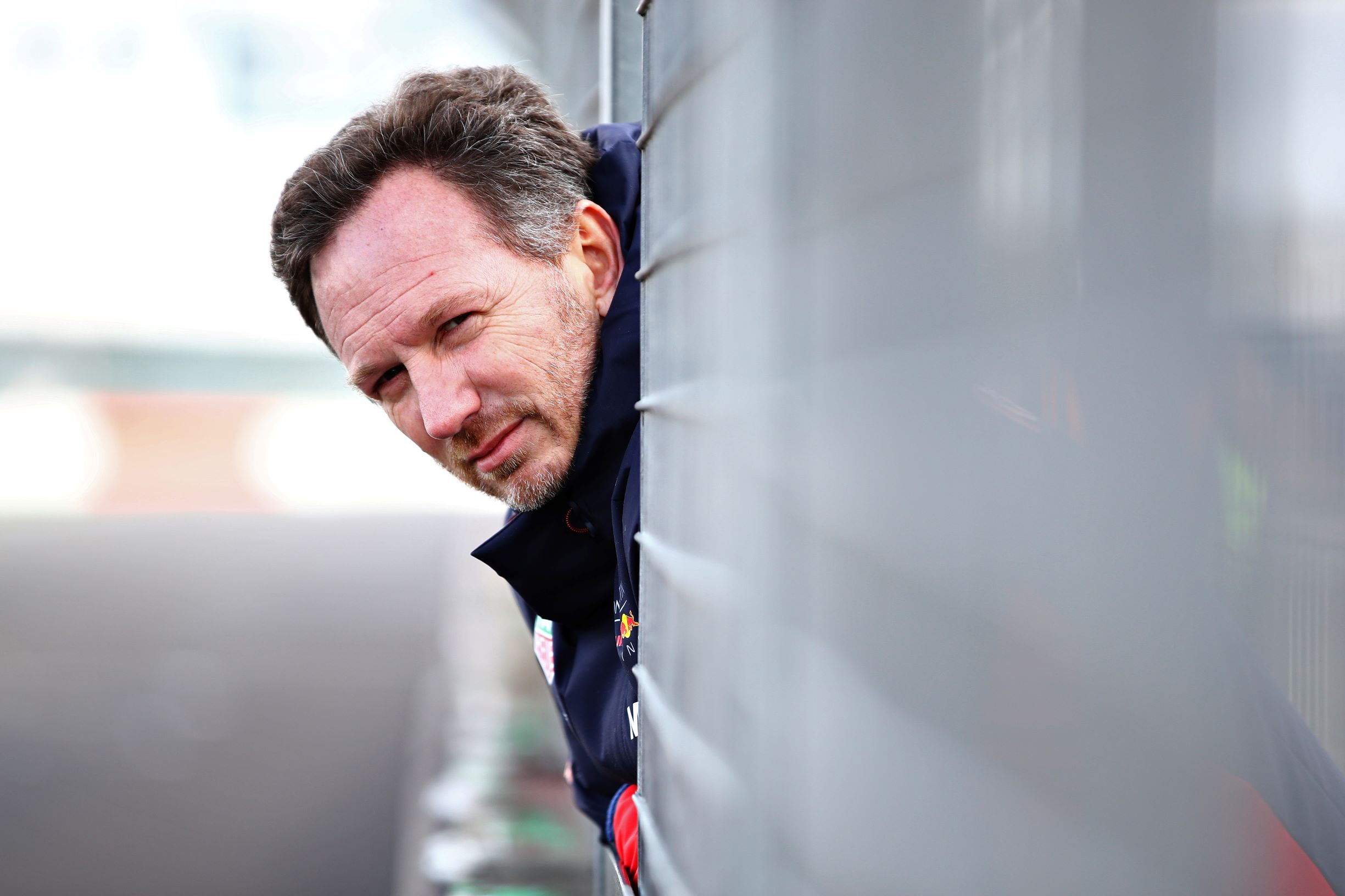
At the time the idea of a fizzy drinks company entering F1 was dubious, to be completely frank. The audacity that you could compete in this ‘old boys’ network was laughed at. And here you are, one of the youngest Team Principals ever. As a 31-year-old, were you terrified? Excited?
I was probably too young to be terrified. I think it was the exuberance of, you’ve got nothing to lose. So, I just threw everything at it, everything I had. You have to believe in yourself and your principles and your approach, and that’s what I did. Formula 1 is arguably the biggest team sport in the world, and it’s about getting the right group of people together, sharing a common goal and objective.
And you jump in with both feet. Literally, there’s video of you jumping in the Red Bull pool naked with only a Superman cape after your first podium.
Yeah, because you make stupid bets as a youngster. I was on a steep learning curve in those days, and one of those things I learned was never make a bet that you’re not prepared to carry out. And certainly I’ve always carried out what I said I’d do.
You guys are a great team. But like you’ve said, when you win four Championships in a row, even coming in second stings. How do you deal with that mentally after winning four years?
You get used to winning. It becomes like a drug. You become addicted to it. And anything other than winning is just not good enough, it doesn’t have the same fulfillment. It’s never enough…. Competing in a sport at the highest level is all about performing and about winning. That’s what we’re measured on. And for us, nobody’s won a championship, other than Mercedes and us, for the last 10 years. And obviously Mercedes for about six years have been totally dominant. And there’s some great teams that we’re competing against: Ferrari, McLaren, Mercedes, historical teams like Williams, Renault. Those are big manufacturers and we’re taking on all those guys, and there’s just Mercedes that we’ve got to get on top of now. But they set the benchmark high and that is the target that we’re shooting for…. [Our current partner] Honda shares the same goals and aspirations that we do, and we’re starting to pick that momentum up again. And it feels like we’re building something that could be pretty awesome in future years.
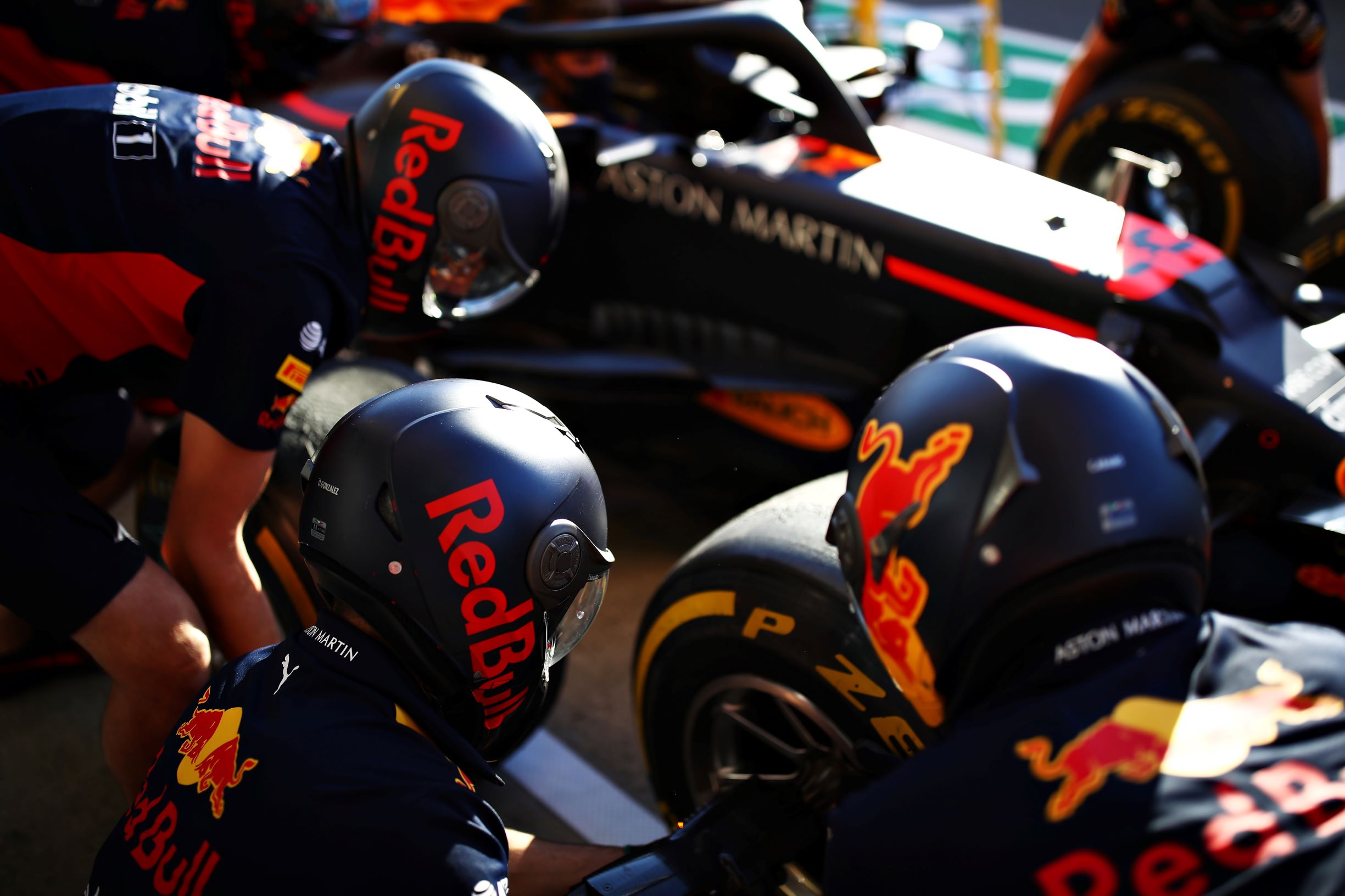
Here in America the Netflix show Drive to Survive has been absolutely monstrous for fans. It got my girlfriend to watch. The illumination of such a traditionally secretive sport is absolutely brilliant; the paddocks are usually like Fort Knox.
I think it has had a tremendous impact. I mean, there was a lot of trepidation when Netflix was announced as coming around. And we embraced it from the beginning. I felt there was a positive thing for the sport to bring in a new viewership and to get behind the scenes as to the characters of the sport, particularly the drivers. And some of that’s a little bit uncomfortable at times, but I think people get to see the character of the teams and the individuals. And I think Formula 1 is much more than just a sport; sometimes what goes on behind the scenes is as interesting as what goes on on track. Netflix didn’t just focus on the technical aspect, it focused on the personalities. And I think that was what brought in a new audience. We’ve seen an enormous success from that, particularly in the U.S., where the sport is having huge growth, and mainly thanks to the success of Netflix bringing in a new audience. My daughter would never sit down and watch a Formula 1 race before, but now suddenly there are all these hot young guys. She wants to know who Charles Leclerc is, and Max Verstappen, and so on. It’s suddenly brought in a whole new audience and interest into the sport.
You see the dynamics between the racers, and often how a teammate is the biggest rival in the entire field. It really brought the drama, minutiae, passion and everything right to the forefront. It’s not just about race day—it’s about everything leading up to it.
Absolutely. And I think that’s where the show has been successful, it’s created that emotion. And the way it shows the competition and conflict that exists between drivers and rivalry between teams, it humanizes it.
As a Team Principal do you ever sit down for a beer with [Mercedes Team Principal] Toto Wolff when the camera’s off? What’s the rivalry like? You ever want to punch one of these guys?
I get Toto, there’s a healthy rivalry and respect at the end of the day. I don’t know whether he drinks beer. It’s a tough business, it’s a tough sport, and hugely competitive. But yeah I think there’s a respect for either party.
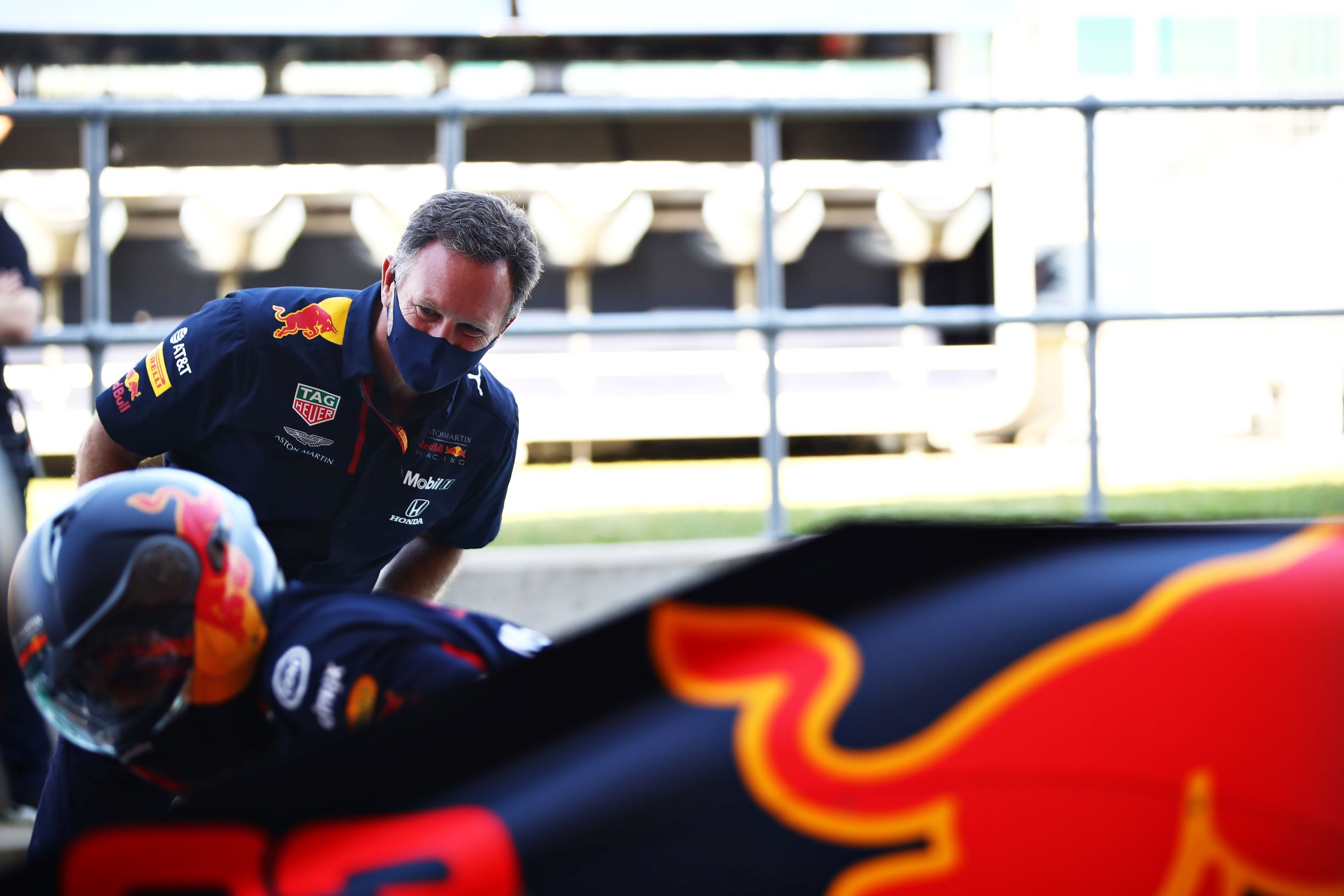
Currently Red Bull is a very young team, with a strong history of great drivers. Obviously Vettel, the first youngest champion. Four time repeat. Red Bull discovered Daniel Ricciardo, he had a great run. Now you have Max Verstappen and Alex Albon, who are both excellent drivers. You’ve been in the sport for decades now—what makes Verstappen special?
Well, he’s got a huge amount of talent. He’s got great bravery. He’s massively determined. He never gives up. He’s a fighter. And he’s just a very, very exciting talent to work with. He’s still quite raw, but he’s got quite a lot of experience behind him. Now he has done, what, five years of Formula 1, at 22 years of age; it’s insane. He’s a great asset to our team and for sure a future champion.
I’m sure you’ve been asked a million times, but any chance Vettel comes back and bookends his career with the team that created him?
Well, we had a great time with Sebastian. He’s still very much a friend of the team. We won four consecutive World Titles together. I think 34 race wins, something crazy like that. And he was a product of the Red Bull junior program. But life moves on and we now have two new talents in the car in Max and Alex. I don’t think anybody was expecting Sebastian to become available on the market this year, which is unusual for a quadruple world champion to be actively out of a driver’s spot. So we don’t have a place in our team for Sebastian with the dynamic that we have, with the drivers and the methodology that we have in developing young talent. I hope he remains in Formula 1, but we don’t have that space within our team.
Can you tell me about the specific challenges that COVID-19 has presented this season?
I think that there are always compromises that have to be made. The amount of testing and the restrictions that we have aren’t ideal, but they are what they are. And it allows Formula 1 to continue, which I think is a positive thing, in the safest possible manner. So hopefully in time things will get back to normal. But in the meantime, if this allows and enables the sport to continue to get record audiences through its TV following, then that’s good for Formula 1.
https://www.instagram.com/p/CEo3JXeKIJm
Have there been any positives you’ve spun from this time personally?
Well, I suppose the biggest positive I’ve had was the amount of time I got to spend with my family. I mean I’ve been on the road since the mid-‘90s pretty much, racing internationally and so on, so it was the most time I’ve had collectively at one place since I was at school. So the ability to be around your family, your children and so on, that was invaluable in many respects. I’m grateful for that time. And obviously you appreciate the important things in life when a situation like that arises. It also makes you realize how much you enjoy what you do, because you miss the competition. And therefore to get back to racing was always a priority. And it’s great to see the sport come together to achieve that.
